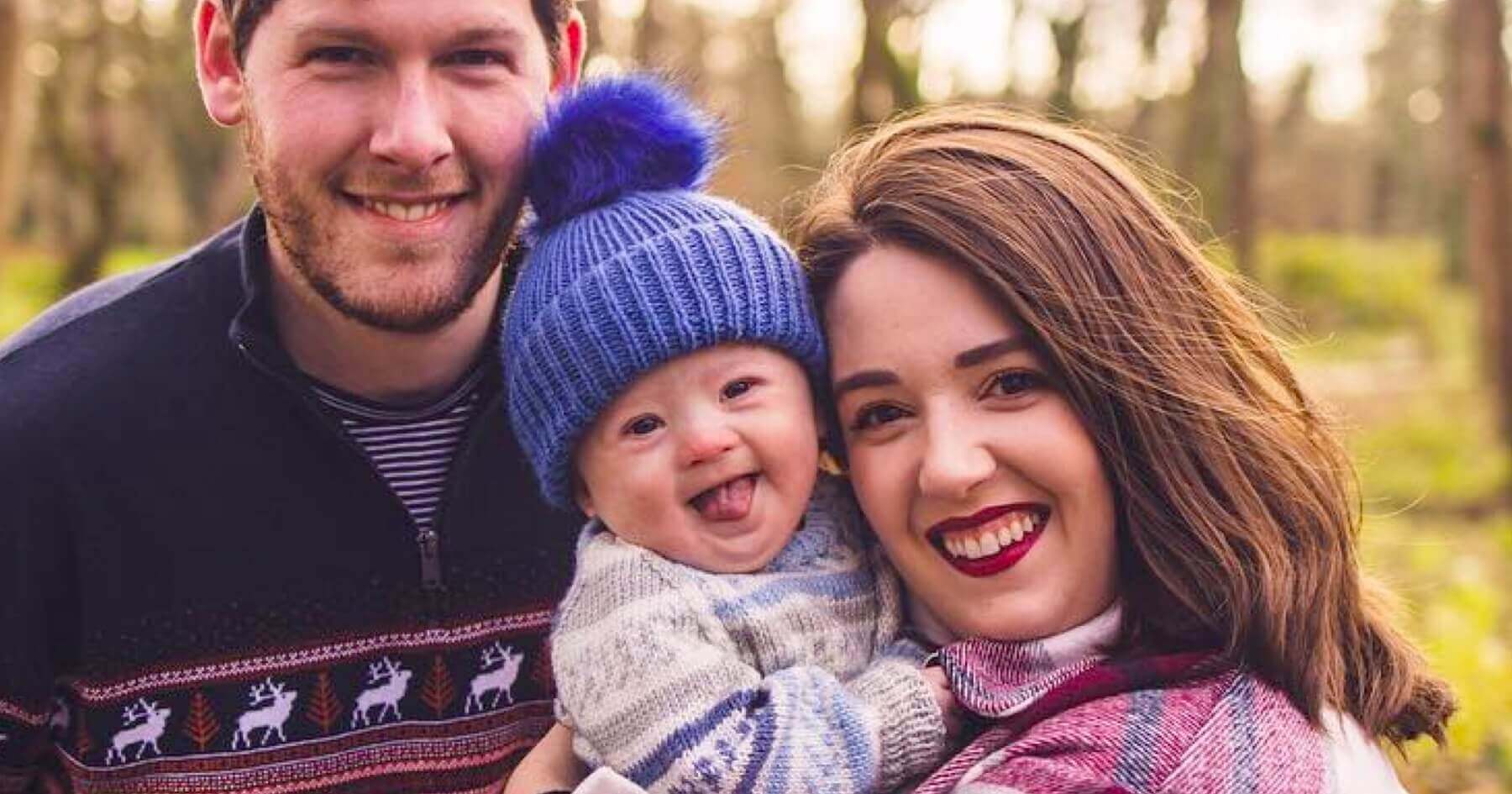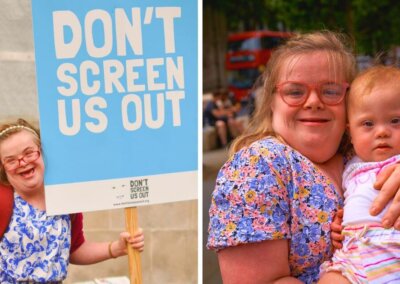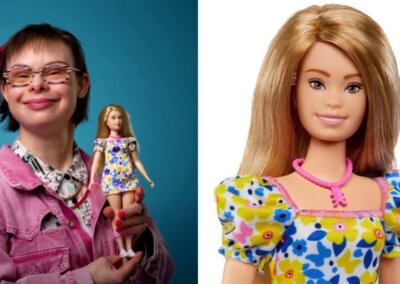A mum from Northern Ireland has recorded a moving song as her son turns one in order to help spread a positive message about Down’s syndrome.
Peter and Sara did not know that their son had Down’s syndrome until after he was born. Sara said:
“The scary thing was we didn’t know anything about Down’s Syndrome so the first thing you do is you skip forward 20 years and you think, what is this going to be like”.
But as time passed and they spent more time getting to know their son Tom, these concerns began to fade and now Tom brings so much joy to their lives. Sara continued:
“But now we know a bit more, we’ve connected with other families and we know that early intervention is key with physio and speech therapy and now we know better I want to help other new parents”.
Sara has taken up blogging about their lives to raise awareness and spread a positive message about Down’s syndrome. Sara, who also sings in her spare time, has recently recorded a song for her son to celebrate his first birthday and show how special life with him has been.
“It’s been incredible. He is just such a good baby. We just want other parents to know that it’s going to be OK, it’s going to be better than OK, it’s going to be great!”
“Down’s Syndrome isn’t something to be feared, we love our lives, we love Tom!”
“If we could have watched a video like the one we made the day he was born we just would have felt so much better, so that’s what we want to do to help other parents who got the surprise we did”.
New bill seeks to ban abortion on the grounds of disabilities including cleft lip, club foot and Down’s syndrome in Northern Ireland
Sara, Peter and Tom’s story comes at the same time as the Northern Ireland Assembly is debating the ‘Severe Fetal Impairment Abortion (Amendment) Bill’, which proposes to prevent abortion on the grounds on non-fatal disabilities including Down’s syndrome.
Member of the Legislative Assembly Paul Givan who introduced the Bill said: “The current law tells those with disabilities that they are worth less than other people, their contribution is less valuable, their lives less important, less full”.
“It invites us to view those with disabilities as less deserving of the protection of the law. The idea that Down’s syndrome is some huge problem that should be addressed by abortion is chilling. You don’t have to look far to see the full lives those with disabilities lead – they enrich our communities and families”.
The Bill also has the support of disability campaigner Heidi Crowter, who herself has Down’s syndrome. She said: “[A law] that allows abortion up to birth in Northern Ireland makes me feel that I am not as valued as anyone else. Maybe people are even told that living with Down’s syndrome is too hard, but research confirms that people with Down’s syndrome and their families are happy with their lives!”
Pro-life organisation Right To Life UK has called on the public to show their support for the Bill.
They are asking people in Northern Ireland to contact their MLAs asking them to vote for the Bill, and for those outside Northern Ireland, they are asking them to sign a petition to the leaders of the political parties in the Northern Ireland Assembly calling on them to support the Bill.
Right To Life UK spokesperson, Catherine Robinson, said: “Sara, Peter and Tom’s story is a truly heartwarming one. As the parents admit themselves, their greatest fear was the unknown. Many people are quite ignorant of what it really means to have Down’s syndrome, they fear the unknown and immediately think the worst. There seems to be little public awareness of the joy that people with Down’s syndrome can bring to their families”.
“This is partly because of a medical culture which is often extremely negative about Down’s syndrome and other chromosomal conditions. Abortion is frequently presented as the default option. It is apparently so prevalent that the Royal College of Obstetricians and Gynaecologists (RCOG) has had to issue guidance to medical professionals reminding them that they must not put pressure on mothers and families in any way after a diagnosis of disability in the womb”.
Image credit: https://www.facebook.com/twentyonetom/photos/221848972876939












